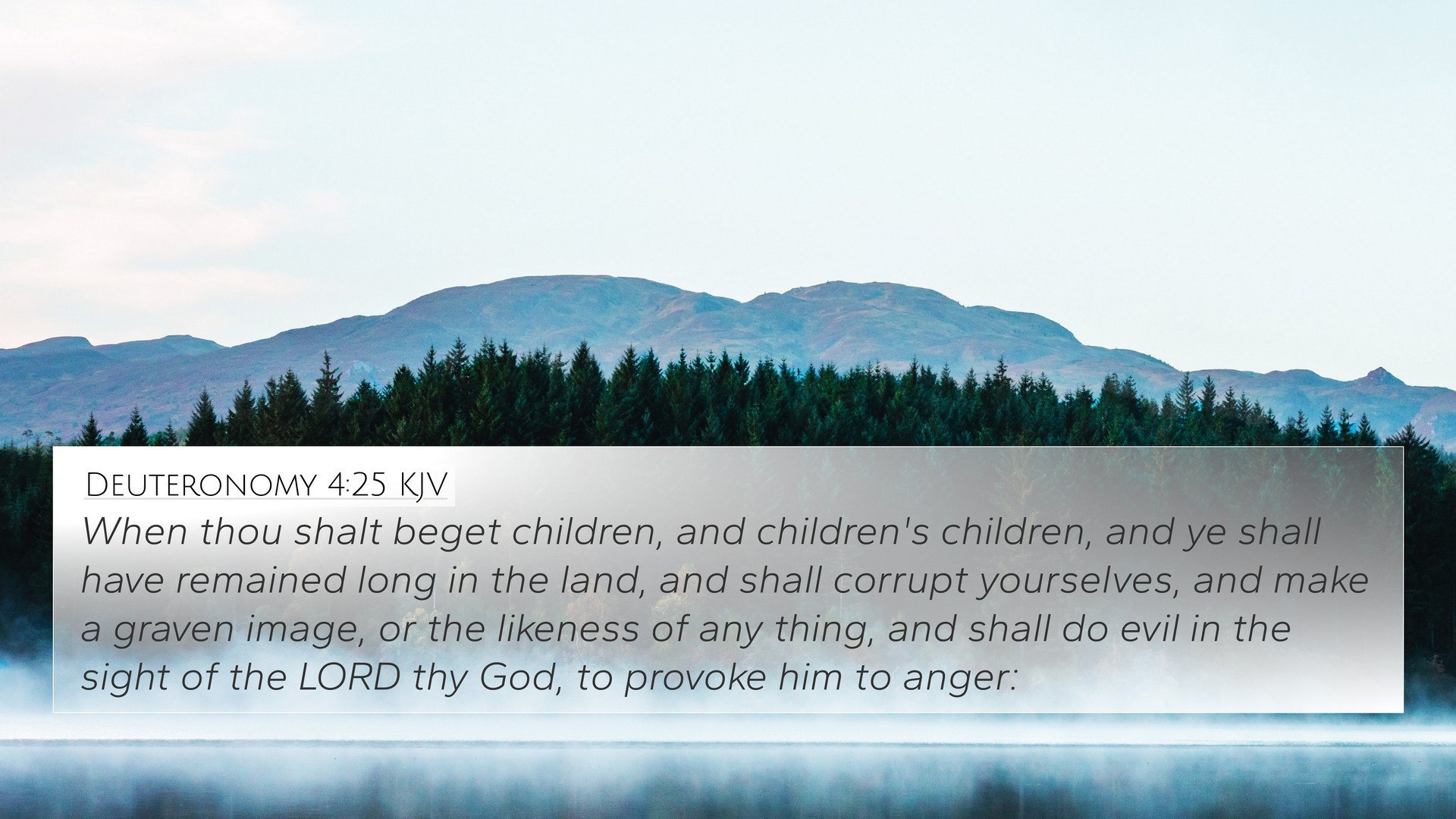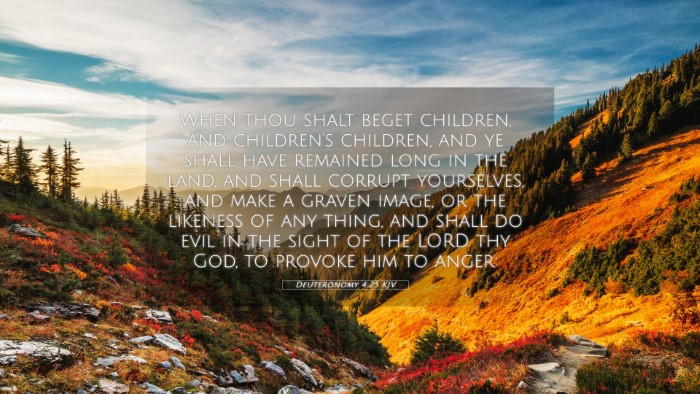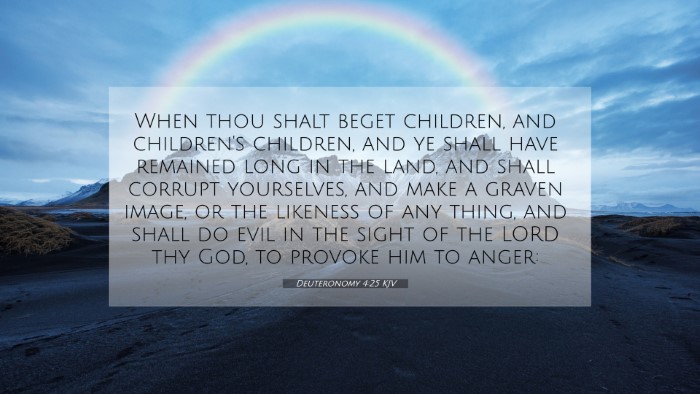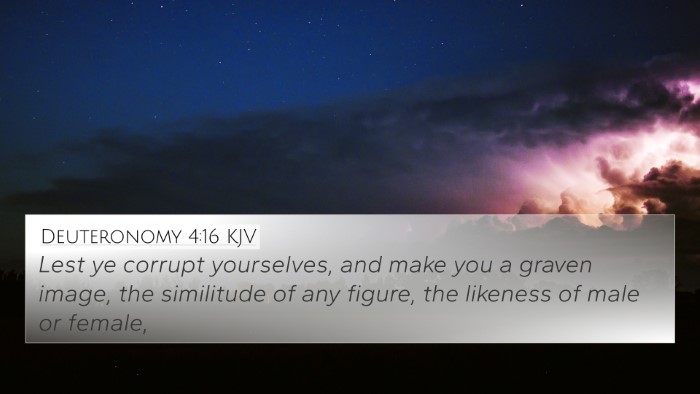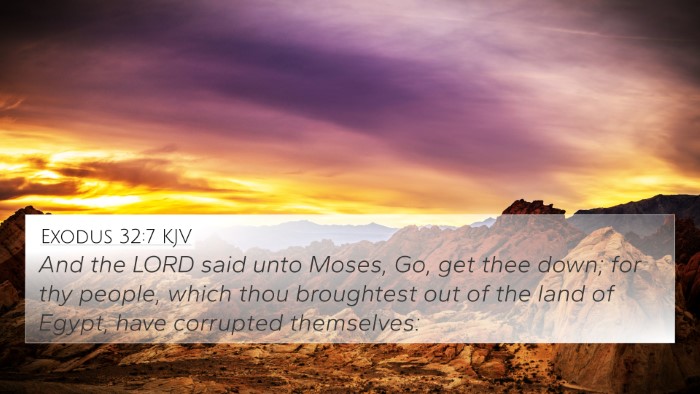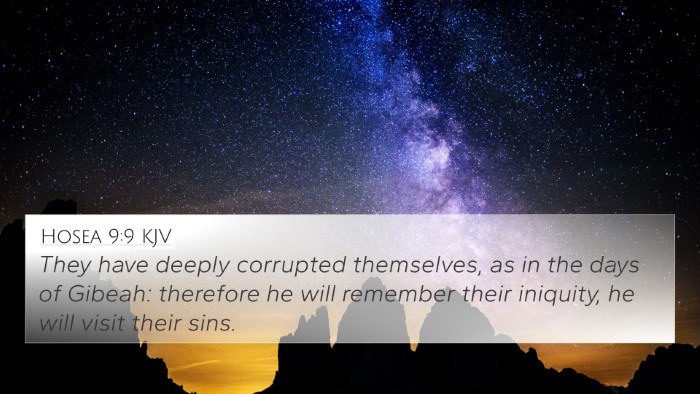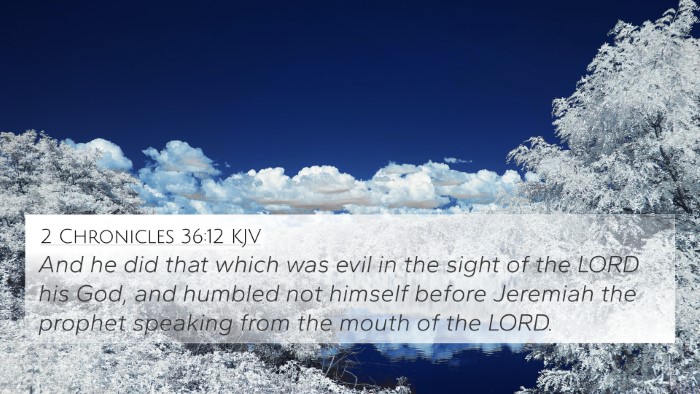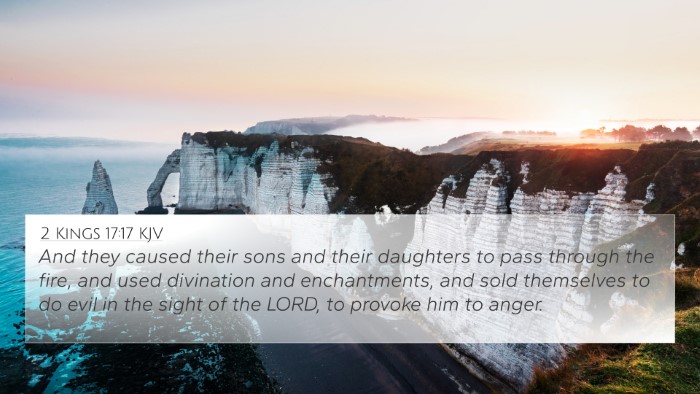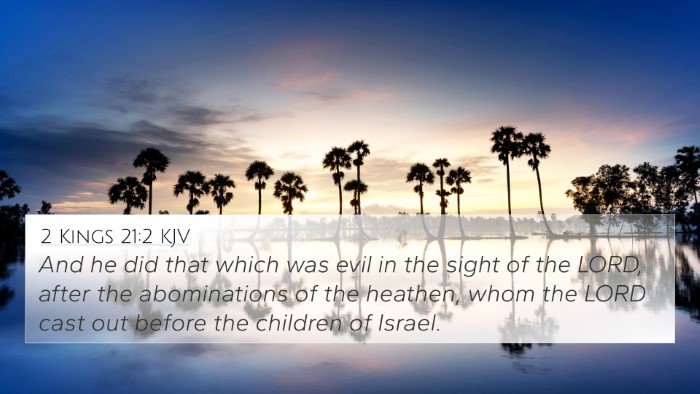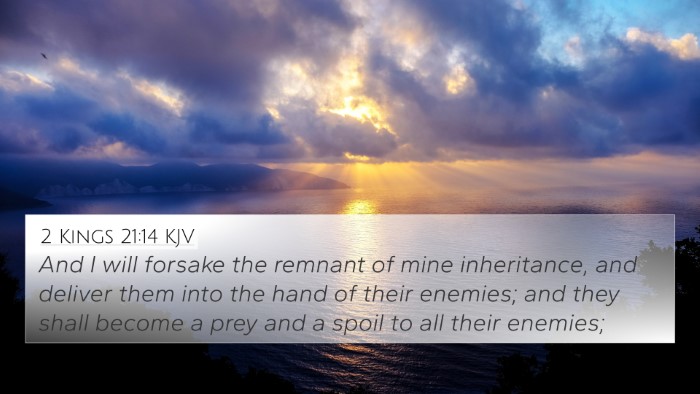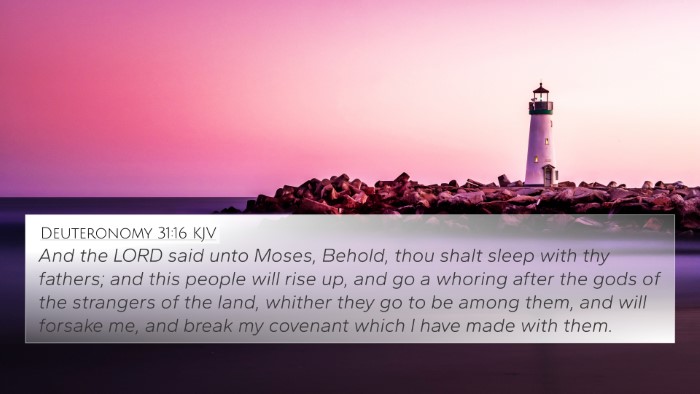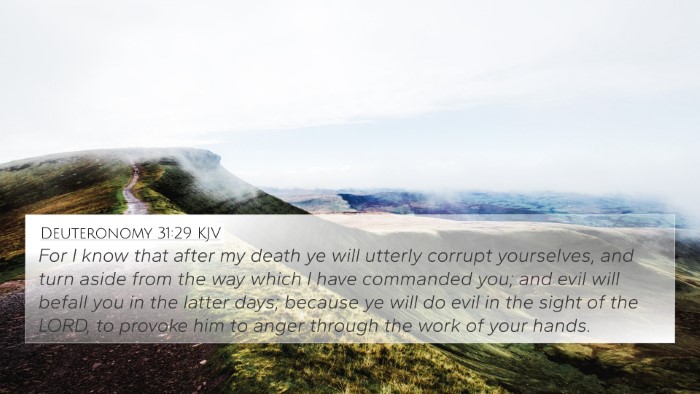Understanding Deuteronomy 4:25
Deuteronomy 4:25 states:
"When you beget children and grandchildren, and have grown old in the land, and act corruptly, and make a carved image in the form of anything, and do evil in the sight of the Lord your God to provoke Him to anger."
This verse serves as a poignant warning against the dangers of idolatry and moral decay that can arise in future generations. Here is a detailed interpretation of its meaning, drawn from the insights of early public domain commentaries.
Summary of Verse Meaning
The warning outlined in Deuteronomy 4:25 can be understood through the following points:
- The Responsibility of Parents: The verse reminds parents that they have a critical role in passing down values to their children. As observed by Matthew Henry, the actions and choices of the current generation shape the faith and behavior of the next.
- The Danger of Complacency: Albert Barnes highlights that growing old in the land can lead to spiritual complacency, where the blessings of God might be taken for granted, leading to the creation of idols or false representations of God.
- Corruption of Values: Adam Clarke emphasizes that the temptations of wealth and power can corrupt one’s values, turning away from the true worship of God toward idolatry.
- Provoking God to Anger: The verse warns that idolatry is not merely a cultural misstep but acts that provoke God’s anger, resulting in severe consequences as depicted throughout the Old Testament.
Cross-References for Deuteronomy 4:25
Thematic connections between the verses help reveal deeper meanings. Here are 7-10 Bible cross-references relevant to this verse:
- Exodus 20:4-5: This passage outlines God's command against making graven images and serves as a direct warning against idolatry.
- Joshua 24:20: Joshua reminds the Israelites of the consequences of forsaking God for foreign gods, reinforcing the call for loyalty to God.
- Judges 2:12: Here, we see the cycle of Israel's disobedience and the resultant idol worship that leads to God’s anger.
- Psalms 106:39: This psalm addresses Israel's descent into idolatry and the accompanying consequences, emphasizing the continuous need for vigilance in worship.
- Jeremiah 2:5: God chastises Israel for following worthless idols, drawing a parallel to the themes of Deuteronomy regarding corruption.
- Ezekiel 14:6: The need for repentance is outlined, echoing the warnings in Deuteronomy about turning away from sin.
- Colossians 3:5: The New Testament also warns against idolatry, equating covetousness with idol worship, indicating a continuity of theme.
The Importance of Contextual Analysis
Understanding Deuteronomy 4:25 within its broader scriptural context enhances its significance. The overarching narrative that binds the Old and New Testaments shows how themes of idolatry and devotion resonate across scripture.
Utilizing tools for Bible cross-referencing can help unveil these connections. Comprehensive Bible cross-reference materials, like a Bible concordance or a Bible cross-reference guide, facilitate a deeper understanding of how these verses interrelate.
Connections to New Testament Teachings
As seen in New Testament teachings, there is an ongoing warning against idolatry and a clearer understanding of how to engage with God through Christ. Inter-Biblical dialogue reveals that the fundamental issues in Deuteronomy remain relevant, marking a consistent divine concern for worship and purity.
Similarities Between Old Testament and New Testament
For instance, the themes in Deuteronomy resonate with the teachings of Jesus in the Gospels, where the essence of the law is to love God wholeheartedly, warning against any form of idolatry:
- Matthew 6:24: “No one can serve two masters...” establishes the impossibility of split allegiance.
- 1 John 5:21: “Little children, keep yourselves from idols.” emphasizes similar warnings beyond the Old Testament context.
Conclusion
In summary, Deuteronomy 4:25 offers more than a historical warning; it serves as a spiritual guide through the ages. Understanding its implications prepares believers today to safeguard their worship and faith, ensuring it remains aligned with God's commandments. The connections between Bible verses, such as the parallels observed here, enrich our study and enhance our spiritual understanding.
By engaging in cross-referencing Bible study methods, we can explore these themes thoroughly, ensuring we grasp the lessons scripture teaches us about faith and devotion.
